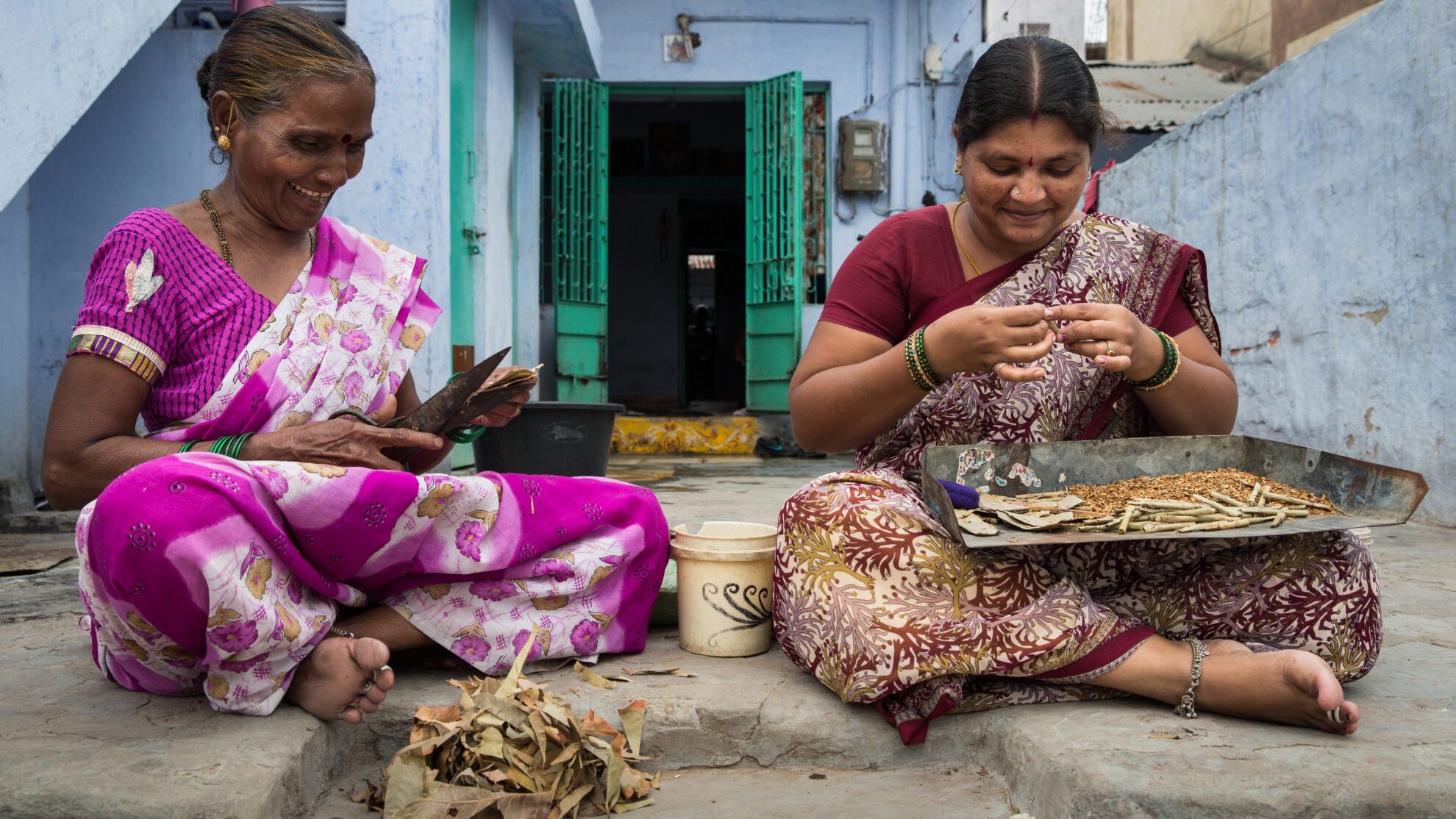Policy Roundtable on Informal Enterprises in India
-
October 6, 202511:00am - 5:00pm Sri Lanka (UTC+5:30) | 5:30am - 11:30am UTC
- NITI Aayog, New Delhi

Photo Credit: Paula Bronstein/Getty Images Reportage (Photo Credit Required). Ahmedabad, India: Rookmani Ram Naryan (left) and her daughter, Kavita Harshiresh Yemul, spend many hours each day on the floor of their small home hand rolling Indian-style cigarettes called bidi. Home-based workers such as Rookmani and Kavita, both members of the Self Employed Women's Association (SEWA), a trade union for poor, self-employed women in the informal sector, are vulnerable to exploitation by middlemen and suppliers. As SEWA members, they have more bargaining power and visibility for their hard-earned income.
“Enterprises in India” is a collaborative project from SEWA Bharat, WIEGO and UNU-WIDER, with support from the Lakshmi Mittal and Family South Asia Institute at Harvard University.
The project seeks to explore the enterprise landscape in India from the ground up, where the vast majority of enterprises are small and informal. This initiative aims to better understand enterprise ownership, location and performance, identify structural barriers to productivity and shape actionable policy pathways to enhance the productivity and resilience of informal enterprises—especially those led by women. Informal enterprises, though often invisible in policy discourse, are found in many industries or sectors and are often embedded in larger value chains and contracting systems. Strengthening them is key to inclusive economic growth and improving outcomes in both the informal and formal economies.
The roundtable will feature presentations of initial findings and insights from ongoing analysis of national survey data, and seek feedback from policy and subject-matter experts. The data analysed to date include the Annual Survey of Unincorporated Sector Enterprises (ASUSE) and the Annual Survey of Industries (ASI), covering the period from 2010–11 to 2023–24. Discussions at the roundtable will help refine the analysis and inform the next phase of the project. These insights will be critical in shaping an inclusive, evidence-based approach to measuring and supporting India’s informal enterprises.